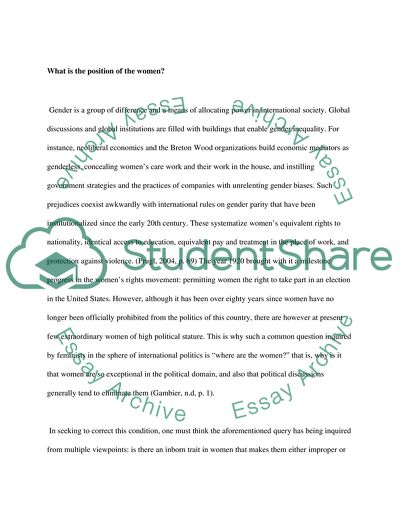Cite this document
(Is International Politics a Gendered Realm Assignment, n.d.)
Is International Politics a Gendered Realm Assignment. Retrieved from https://studentshare.org/politics/1726709-theories-and-research-strategies-in-international-politics
Is International Politics a Gendered Realm Assignment. Retrieved from https://studentshare.org/politics/1726709-theories-and-research-strategies-in-international-politics
(Is International Politics a Gendered Realm Assignment)
Is International Politics a Gendered Realm Assignment. https://studentshare.org/politics/1726709-theories-and-research-strategies-in-international-politics.
Is International Politics a Gendered Realm Assignment. https://studentshare.org/politics/1726709-theories-and-research-strategies-in-international-politics.
“Is International Politics a Gendered Realm Assignment”, n.d. https://studentshare.org/politics/1726709-theories-and-research-strategies-in-international-politics.


